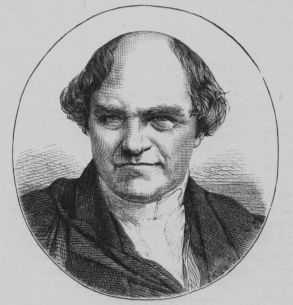Lectures on the History of Moral Philosophy in England, Lecture 7. (1852).
Famous William Whewell Quotes
Part 1, Book 2, ch. 2, art. 1.
Philosophy of the Inductive Sciences (1840)
“It is a test of true theories not only to account for but to predict phenomena.”
Aphorism 39.
Philosophy of the Inductive Sciences (1840)
“The catastrophist constructs theories, the uniformitarian demolishes them.”
Aphorism 36.
Philosophy of the Inductive Sciences (1840)
Elementary Treatise on Mechanics, The Equilibrium of Forces on a Point (1819).
“In art, truth is a means to an end; in science, it is the only end.”
Aphorism 25.
Philosophy of the Inductive Sciences (1840)
William Whewell Quotes
Part 2, Book 11, ch. 5, sect. 3, art. 10.
Philosophy of the Inductive Sciences (1840)
Part 1, Book 1, ch. 7, art. 1.
Philosophy of the Inductive Sciences (1840)
Part 1, Book 1, ch. 2, sect. 7.
Philosophy of the Inductive Sciences (1840)
“Man is the interpreter of nature, science the right interpretation.”
Aphorism 17.
Philosophy of the Inductive Sciences (1840)
Part 2, Book 11, ch. 5, sect. 3, art. 12.
Philosophy of the Inductive Sciences (1840)
